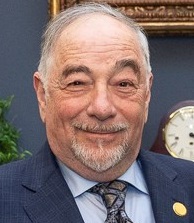A Quote by David Boies
We're now segregating our schools based on economics; we're segregating our schools based on where a child's parents live. And it has the same corrosive effect of destroying people's opportunity as racial segregation did.
Related Quotes
Not every child learns for the same purpose, not every child thrives in the same settings and schools. Limiting a child to just one opportunity does nothing more than limit that child's future. The way forward must involve more public charter schools, which offer parents a tuition-free alternative to their neighborhood school.
Everybody wants to have sex - you don't have to have a baby when you're 16. You don't have to do drugs. I think our Sunday schools should be turned into Black history schools and computer schools on the weekend, just like Hebrew schools for Jewish people, or my Asian friends who send their kids to schools on the weekend to learn Chinese or Korean.
Having music in the schools, having art in the schools, having art in your life, should not be heroic. It should be every day. Having things we've paid for years ago and that we depend on kept up - our schools, our political institutions - should not be a heroic act. It should be part of our daily citizenship. The idea that we had to do this incredibly exhausting, two-year-long, very expensive, labor intensive, community-based action, is, one the one hand unbelievably great, and, on the other hand, really depressing.
The path to a better future goes directly through our public schools. I have nothing against private schools, parochial schools and home schooling, and I think that parents with the means and inclination should choose whatever they believe is best for their children. But those choices cannot compete, and cannot come at the expense of what has been -- and what must always be -- the great equalizer in our society, a free and equal public education.
There’s a belief now that the problem with our schools is parents, that if we just had better parents we would have better performing kids and, therefore, we wouldn’t have a problem at all. But what’s missing in that equation is that you do have a lot of parents in this country who are very involved in their children’s education and who do want something better. They want to see better for their kids. They know that they’re in schools that aren’t performing particularly well and if you look at how we treat those parents, it is quite poorly.
I'm allergic to over-promising. I'm allergic to exaggeration, because I've been in schools for a large part of my life, and I still go to schools. What I want is realistic, evidence-based kinds of things that know the history of efforts to individualize instruction and why they flop before, so you can have a much smarter approach to reforming schools, to improve what goes on in classrooms.




































